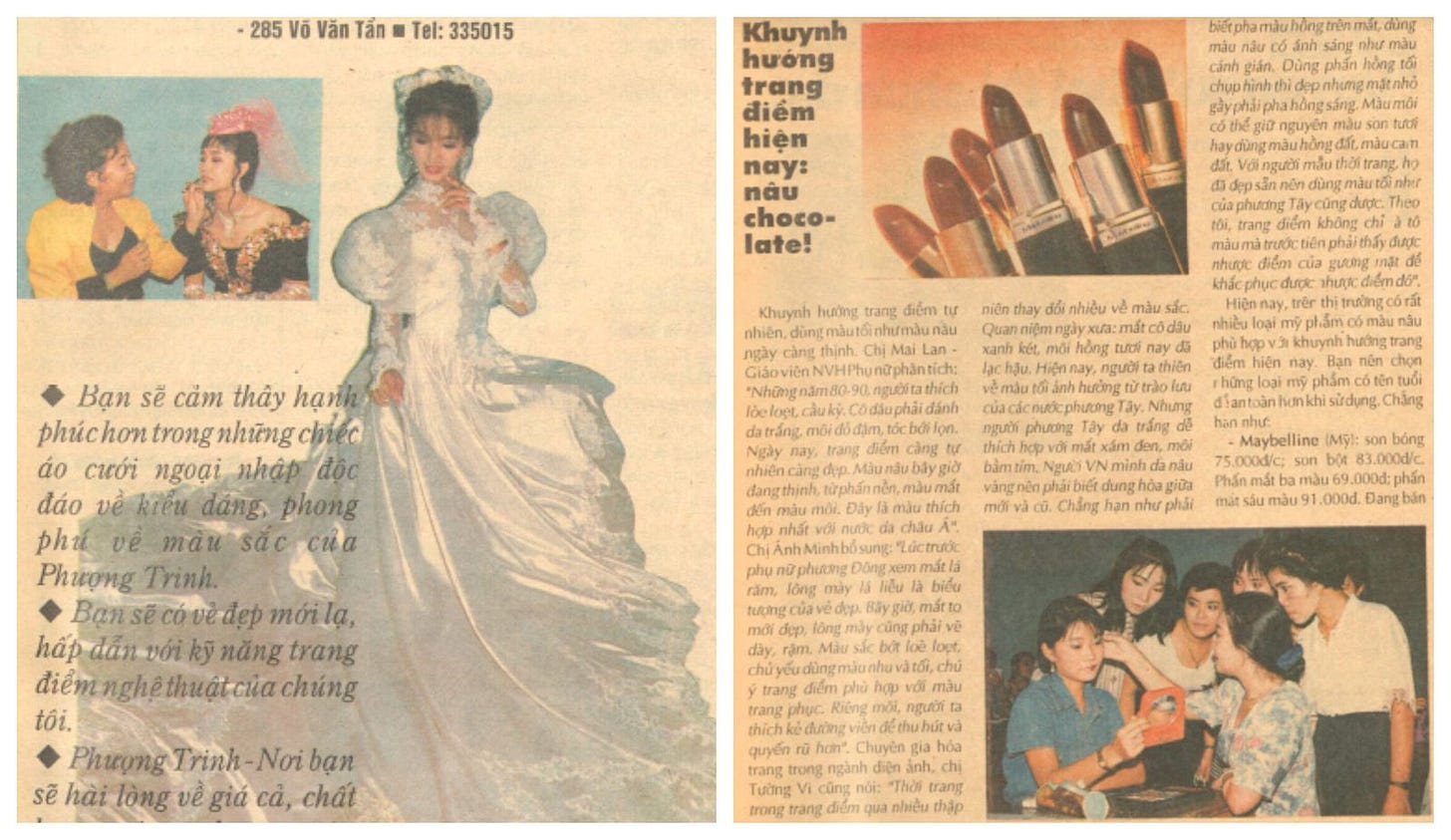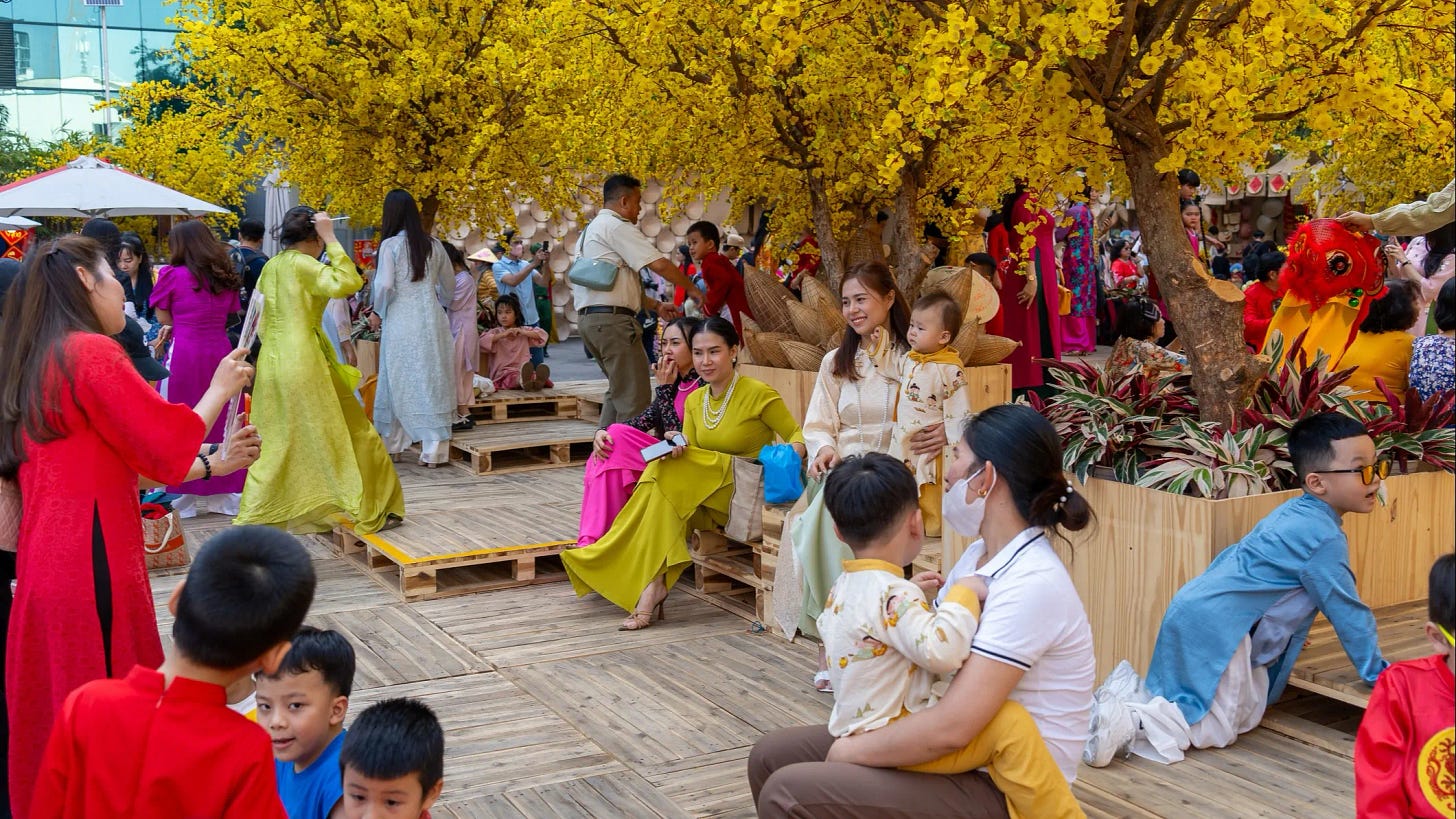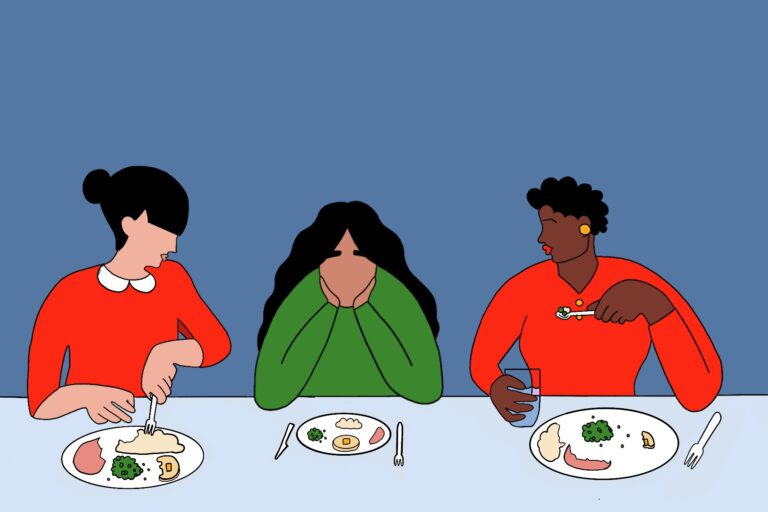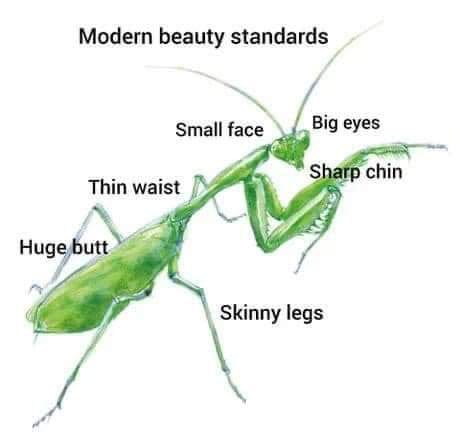My experience with the extreme beauty standards of Vietnam
Why it's so different than the West, why it exists, and it's impacts.
I didn’t grow up being considered “beautiful” according to Vietnamese beauty standards. I wouldn’t say my current lifestyle and diet are unhealthy, but my physique certainly does not fit what society expects a woman to look like. My face is too round, my shoulders look too big, and something that has bugged me almost my entire life: I’m too fat.
I started receiving fat comments at the age of 6 and got bullied and body-shamed for 3 years in secondary. About a year or two at the start of high school, my daily meal contained mostly water and air. Whenever I felt like I over-ated, I would throw up everything. Just to be thin. When I lost about 6kg in a few months from starving myself, my relatives started complimenting me on how I looked much thinner. For the first time in years, I received that beauty validation I craved for so long. My old teachers could not recognize me. It was not healthy, but it did the job.

Despite my drastic weight loss, it seemed like it was never enough. The people around me, my peers, and even some of my family members, continued to perceive me as fat. Even now, when I have managed to develop a much healthier relationship with my body, I am aware that there are still people who judge me based on my appearance. This constant societal judgment has taken a toll on my mental health, but I have learned to stop caring about what these people think.
Here is a list of comments I have received over the years, with context:
(from a teacher) “You can’t have this chicken fat in your sticky rice. You’re too fat.” I was seven. SEVEN.
“YOU go to the gym? ’Cause you don’t look like you do.”
(after I sent a picture of my cat) “just as fat as its owner.” FYI, the dude who said this was and is still overweight.
“Have you been eating more lately? It shows.”
The thing is, I’ve learned that the beauty standards in Vietnam (or East/Southeast Asia in general) are much more different than the West. In these cultures, being thin is often equated with beauty, and there is a strong emphasis on physical appearance. Sure, being thin is still the ultimate beauty expectation in 99% of the world. Still, people aren’t that extreme to expect you to look like a stick in, let’s say, America. I have friends who went to study abroad in Australia and the US, and the comments they got went from “You’re so fat” to “You’re so beautiful.” Most of the time, they receive no comments on their appearance unless they actually asked for one.
Disclaimer: people judge your appearance EVERYWHERE. If there are humans, there are judgments. Just because it’s less in Western countries does not mean it doesn’t exist. The point is that it appears less, and the standards are usually less extreme. That’s it.
Disclaimer #2: "fat" does not equate to ugliness, and 'thin' does not equate to beauty. Both extremes can be dangerous. It’s not about conforming to a specific body type, but about maintaining a healthy and balanced lifestyle. This understanding can help us shift the focus from unrealistic beauty standards to overall well-being.
Why are these standards so extreme?
Disclaimer #3: Beauty standards also exist for men, and they’re more extreme in Vietnam and East Asia in general. But since I am a woman, I will talk mainly about women’s beauty standards.
1. Historical factors
Confucian influence
Confucianism has had a significant impact on Vietnamese society for centuries. Originating from China, Confucian ideals emphasize social harmony, respect for tradition, and the importance of appearance as a reflection of one’s moral character. In this context, women were often expected to embody virtues like modesty, grace, and purity, which translated into strict beauty norms.
Also, did you know that Confucianism was incredibly sexist? Explains why.
Colonial legacy
Oui oui, under French rule from the mid-19th to the mid-20th century, Vietnamese were influenced by their beauty standards. The French colonial presence brought Western beauty ideals, such as fair skin and a slender figure. These standards often contrasted with traditional Vietnamese ideals but were gradually integrated, leading to a blend of Eastern and Western beauty norms.
Association with social status
Aside from the French, fair skin was associated with the upper class. Those with lighter skin were perceived as people who did not work in the fields under the sun, implying wealth and higher social status.
Traditional concepts of femininity
Traditional Vietnamese culture has long emphasized specific traits ideal for women: being delicate, gentle, and graceful. These traits were often visually represented by having a slim, petite frame, long black hair, and a modest, demure demeanor (very demure, very mindful, very cutesy).
The traditional Vietnamese dress, “áo dài,” emphasizes a slender silhouette and flowing lines and reinforces the idea of a slim figure. The importance of maintaining an appearance that embodies these traditional virtues has historically led to stringent beauty expectations for women.

2. The “judgemental culture” of Vietnam
Collectivist culture
Collectivist culture emphasizes the group’s needs, goals, and values over the individual. Maintaining social harmony, face (dignity), and reputation is paramount in such societies.
Individuals who deviate from these norms might be judged harshly for maintaining group cohesion and upholding societal standards.
Confucian influence, again
Suprisingly, most factors in Vietnamese culture can be traced back to Confucianism. It values social order, respect for authority, and adherence to social norms. Often promoting strict moral codes and social hierarchies, it can lead to a culture of judgment regarding behavior that does not align with these ideals. There is often an emphasis on filial piety (respect for one’s parents and elders) and fulfilling one’s role in society, resulting in judgment when individuals are perceived as failing to meet these expectations.
Importance of “saving face” and caring about what other people think of oneself
In Vietnamese society, people are particularly concerned about how others perceive them, leading to increased scrutiny and judgment of others’ actions. Public behavior, family reputation, and personal appearance are often monitored closely to avoid bringing shame to oneself or one’s family.
3. Psychological impact on self-perception
Constant exposure to and internalization of extreme beauty standards can lead to distorted self-perception and low self-esteem, creating a cycle where individuals feel compelled to pursue drastic measures to alter their appearance. They can sometimes influence them to judge others as well.
4. Media influence
Popular culture
There is a substantial influx of beauty ideals from K-pop (Korean pop culture), J-pop (Japanese pop culture), and Western media. These portrayals showcase women with flawless skin, slender bodies, and specific facial features, creating unrealistic standards.
Social media
Since the rise of photo editing tools, humans have been able to alter their appearance most naturally on their Instagram photos. Though seemingly harmless, it pressures other social media users to fit the beauty standards that people around them (supposedly) have.
Commercialization of beauty
The beauty industry often capitalizes on insecurities and promotes extreme beauty ideals to sell products and services. The marketing strategies often depict unattainable standards as the norm, driving consumers to extreme lengths to achieve these ideals.
And finally, to end my list of reasons, a comment I stumbled upon on Reddit answering the question, “What is it about Asian beauty standards that make it seemingly so much harder than Western standards to meet?”:
“The West seems to generally appreciate individuality and uniqueness a lot more. Of course, there are exceptions to that, but most of the famous celebrities we have here are usually appreciated because there’s something that sets them apart from the others—a distinct mouth, a particular hairstyle, uniquely shaped eyes or nose, etc. For example, Jennifer Aniston and Angelina Jolie were both considered extremely attractive during the same time period, but they look nothing alike. There’s also more racial diversity available, so different features are more exposed to consumers, and we gradually learn to appreciate them more.
In the East, values have always been group-minded culturally. Uniformity is celebrated and sticking out is not usually a good thing. The same goes for their beauty standards, which are more rigid—pale, thin, straight small noses, small heads, large eyes, being youthful, etc. While there is a lot more diversity in Asia than most would expect, it’s also more suppressed than in the West. It’s difficult to hit every checkmark on the Asian beauty standard list because of that diversity. The concept of keeping face at all times to avoid humiliation also makes it more difficult to be considered “beautiful” in Asia.”
—u/CriSiStar on r/AsianBeauty
The devastating impacts
The constant feeling of “not enough.”
The mindset of people who judge physical appearance is that it’s never enough. You were “fat,” and now you've lost weight? Lose more. You were thin and now you've gained weight? Gain more. Or just lose it again because you’re too fat now. It makes people feel like they are a project that needs constant work instead of a human who can accept who they are.
Extreme ways to deal with extreme standards
Once people are hopeless about their situation, they will seek extreme ways to alter their appearance and be accepted. This includes:
Extreme diets and lifestyle (starving themself, trying unhealthy diets, overexercising,…)
Spending thousands of dollars on plastic surgery
Buying weight-loss products that are most likely a waste of money
Overusing makeup or clothing pieces that create a more “socially accepted” look
Overusing photo-editing apps to alter one’s physical appearance
Mental health
Now that I think again, the first one can be classified as “mental health,” too. Anyway, the impacts on one’s mental health are:
Eating disorders (and overall a bad relationship with eating)
Antagonistic relationship with one’s own body (Body dysmorphia)
Seeking validation from physical appearances
Depression, anxiety, and all sorts of mental issues that are related
Self-harm, suicidal thoughts, and suicide. Yes, people kill themselves because of this, and it should never have happened in the first place.
In conclusion,
It just sucks to be a human sometimes, isn’t it? To be judged for doing absolutely nothing besides being and looking like the person you were born as?
Sources
(1) caukieucollective. (2021, June 25). Timeline of Vietnam Beauty Standards:From Pre-Colonial Times to Present-Day – Cầu Kiều Collective. Cầu Kiều Collective. https://caukieucollective.com/timeline-of-vietnam-beauty-standards/
(2) Woo Bin Kim, Ha Kyung Lee, & Kang, Y. (2024). How Do International Students Idealize Beauty Standards? A Study of Vietnamese Students Living in Korea. Journal of the Korean Society of Clothing and Textiles, 48(2), 328–349. https://doi.org/10.5850/jksct.2024.48.2.328
(3) Nguyen, H.-K. T. (2020). Beauty Culture in Post-Reform Vietnam: Glocalization or Homogenization? https://doi.org/10.31235/osf.io/pkny6
(4) Juntaramontree, K. (2023). 73 Perception on Asian Beauty Standard: A Global Perspective.
(5) Park, K. (2023, October 5). Asian beauty standards causing more harm than good. Coppell Student Media. https://coppellstudentmedia.com/122653/opinions/asian-beauty-standards-causing-more-harm-than-good/
(6) American Psychological Association. (2020, February 25). Eating disorders.
(7) American Psychological Association. (2022). APA Dictionary of Psychology. Dictionary.apa.org. https://dictionary.apa.org/body-dysmorphic-disorder
(8) Tran, K. (2018, June 3). The Evolution of Vietnamese Beauty Through Old Ads | Saigoneer. Saigoneer.com. https://saigoneer.com/saigon-culture/13282-the-evolution-of-vietnamese-beauty-through-old-ads
(9) Confucianism and Women Video. (2020). Confucianism and Women - Video & Lesson Transcript | Study.com. Study.com. https://study.com/academy/lesson/confucianism-and-women.html
(10) The Reddit comment I quoted is in this Reddit post: AppearanceRDecieving. (2023, September 22). What is it about Asian beauty standards that make it seemingly so much harder than Western standards to meet? Reddit. https://www.reddit.com/r/AsianBeauty/comments/16pjtv7/what_is_it_about_asian_beauty_standards_that_make/




![Animation] Vietnamese Woman Beauty Through The Year :: Behance Animation] Vietnamese Woman Beauty Through The Year :: Behance](https://substackcdn.com/image/fetch/$s_!Il80!,w_1456,c_limit,f_auto,q_auto:good,fl_progressive:steep/https%3A%2F%2Fsubstack-post-media.s3.amazonaws.com%2Fpublic%2Fimages%2F8e27b568-95e6-4f0b-8433-1577032e13cb_1200x675.png)





Khỏe là đc. Xấu đẹp ở mắt người nhìn, mình ko kiểm soát đc